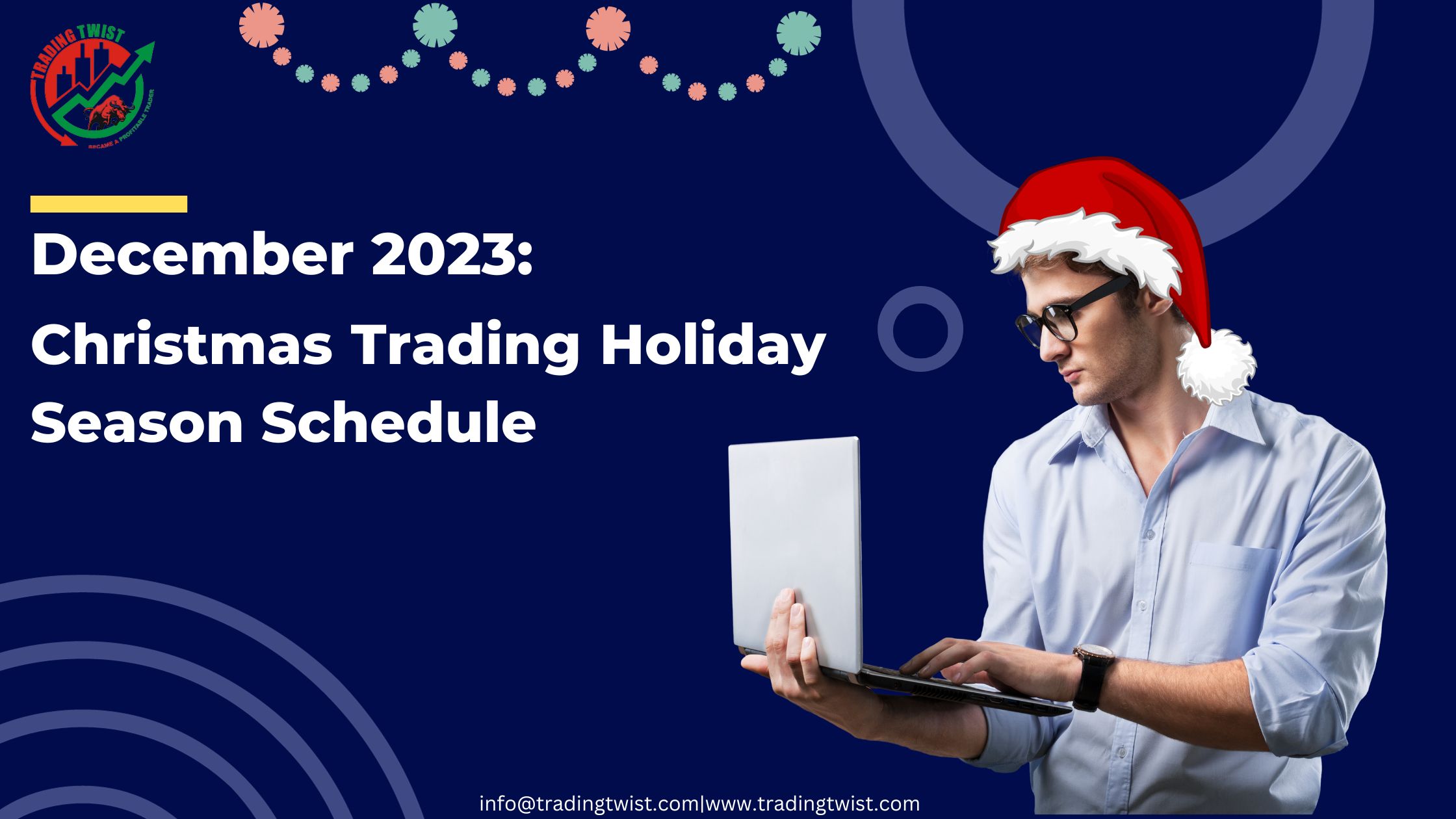
As we usher in December 2023, traders are gearing up for the unique rhythm that the Christmas holiday season brings to the financial markets. Navigating this festive pause requires a keen understanding of the trading schedule. Marking the beginning of closures on December 24th at 5:00 pm EST (10:00 pm GMT), the global markets take a break on December 25th. This article serves as your guide through the intricacies of the Christmas trading holiday season, shedding light on altered trading hours and the consequential effects of diminished liquidity and market volatility.
Understanding the Forex Market
The forex market stands as the largest financial market on a global scale, witnessing the exchange of trillions of dollars every day. Distinguished by its decentralized nature, this market serves as a platform for the buying and selling of currencies, providing participants with a dynamic arena to engage in speculation on the price movements of various currency pairs. Unlike stock markets, which adhere to fixed trading hours, the forex market operates tirelessly, maintaining its openness 24 hours a day, Monday through Friday.
Navigating the Holiday Pause: Understanding Forex Market Closures During Christmas
As the world embraces the spirit of celebration and relaxation during Christmas, financial markets, including the forex realm, gracefully bow to this festive pause. Come December 24th, the forex market traditionally concludes its operations at 5:00 pm EST (10:00 pm GMT) in anticipation of Christmas Day on December 25th when it remains shuttered. The hiatus persists until trading recommences on December 26th at 5:00 pm EST (10:00 pm GMT), marking the resumption of market activities post the Christmas interlude.
It’s important to recognize that the forex market operates on a global scale, and the closing times mentioned earlier may vary due to diverse public holidays observed in different countries and regions. A case in point is the forex market in Japan, which typically shuts down on December 31st and January 1st to observe New Year’s Eve and New Year’s Day. Similarly, in Australia and New Zealand, the market closes its doors on December 25th and 26th for Christmas and Boxing Day.
Festive Tides: Navigating Forex Markets Amidst Holiday Liquidity Ebb
The holiday season introduces a distinctive rhythm to the forex market, characterized by diminished liquidity resulting from the closure of banks and financial institutions. This translates to a reduced presence of traders and investors, paving the way for wider spreads and heightened volatility. Consequently, traders need to approach holiday season trading with caution and adapt their strategies to navigate these unique market conditions.
Additionally, it’s noteworthy that brokers may implement varying trading hours during the festive period by their policies and procedures. Traders are advised to communicate with their brokers to ascertain the specific trading hours and any adjustments applicable during this festive time.
In summary, the forex market takes a break for Christmas, concluding operations at 5:00 pm EST (10:00 pm GMT) on December 24th and remaining closed on December 25th. Normal trading resumes on December 26th at 5:00 pm EST (10:00 pm GMT). However, the influence of public holidays in different regions underscores the importance of staying well-informed and adjusting trading strategies to mitigate potential risks during this period.
Busiest Part Of The Forex Christmas Trading Holiday Period
The good news is you’ve already passed the busiest part of the Forex Christmas holiday trading period, as most markets were closed yesterday, December 25th, which is a public holiday in most countries.
Here’s a summary of the current situation:
Closed on December 25th:
- Christmas Day: The Forex market was effectively closed on December 25th as most countries celebrated the holiday. This means practically all brokers were closed and there was no trading activity.
Open today, December 26th:
- Boxing Day: Most Forex markets have reopened today, December 26th, at their usual times. Liquidity and volatility might be slightly lower than usual initially, but trading is back to normal for most brokers.
Upcoming holidays:
- New Year’s Eve/Day: Be aware that there might be limited trading on December 31st and January 1st due to New Year’s Eve and New Year’s Day celebrations. Some brokers might adjust their trading hours, so it’s best to check with your specific broker in advance.
Here are some additional tips for navigating the holiday period:
- Expect lower liquidity and volatility: Be prepared for wider spreads and potentially choppy price action due to lower trading volume during the holiday period.
- Manage your risk carefully: With less market activity, unexpected news or events can have a magnified impact on prices. Consider adjusting your stop-loss orders and position sizes accordingly.
- Don’t chase the market: Avoid making impulsive decisions based on limited information. Stick to your trading strategy and be patient.
- Take a break: It’s a good time to step back and reassess your trading activity for the year. You can use the holiday period to reflect on your successes and identify areas for improvement.
I hope this information helps! Let me know if you have any other questions about Forex trading during the holidays.








